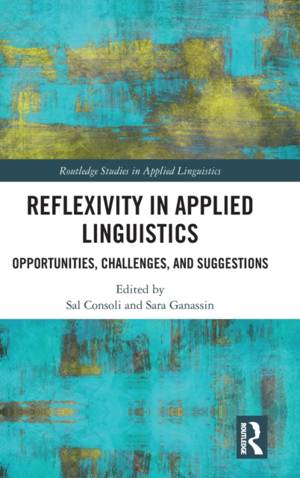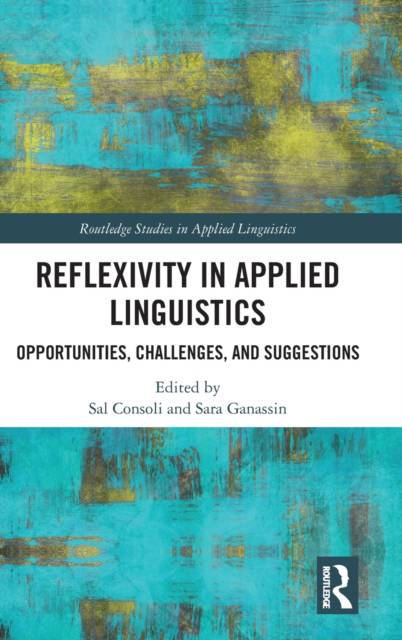
- Afhalen na 1 uur in een winkel met voorraad
- Gratis thuislevering in België vanaf € 30
- Ruim aanbod met 7 miljoen producten
- Afhalen na 1 uur in een winkel met voorraad
- Gratis thuislevering in België vanaf € 30
- Ruim aanbod met 7 miljoen producten
Reflexivity in Applied Linguistics
Opportunities, Challenges, and Suggestions
Omschrijving
This edited collection provides research-informed guidance on how reflexivity may be practised in applied linguistics research. Specifically, we promote reflexivity as an essential hallmark of quality research and argue that doing reflexivity confers greater transparency, methodological rigour, depth, and trustworthiness to our scholarly inquiries.
The collection features perspectives from different sub-fields of applied linguistics, including intercultural communication, language education, and multilingualism, and draws on data from a range of settings, including language cafés, classrooms, workplaces, and migration and displacement contexts. Each chapter follows a unified structure: theoretical background, context of the empirical study used as a backdrop for the chapter, an analysis of how reflexivity played out throughout the study, and conclusions which include takeaway points for other researchers. This approach allows readers to gain a sound understanding of the challenges and affordances of doing reflexivity in concrete examples of applied linguistics research whilst also gaining guidance on how to nurture and report on researcher reflexivity as this unfolds throughout the lifetime of a project.
This book will appeal to students and scholars in applied linguistics, particularly those with an interest in research methods in the areas of language education, multilingualism, and intercultural communication.
Specificaties
Betrokkenen
- Uitgeverij:
Inhoud
- Aantal bladzijden:
- 216
- Taal:
- Engels
- Reeks:
Eigenschappen
- Productcode (EAN):
- 9780367711177
- Verschijningsdatum:
- 18/01/2023
- Uitvoering:
- Hardcover
- Formaat:
- Genaaid
- Afmetingen:
- 152 mm x 229 mm
- Gewicht:
- 480 g

Alleen bij Standaard Boekhandel
Beoordelingen
We publiceren alleen reviews die voldoen aan de voorwaarden voor reviews. Bekijk onze voorwaarden voor reviews.










